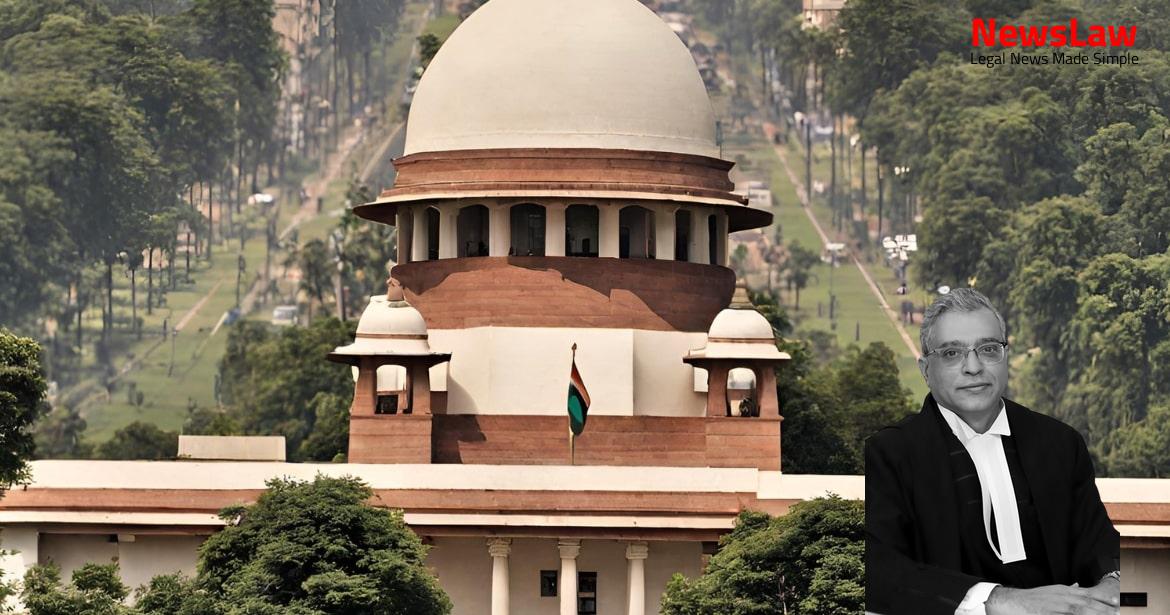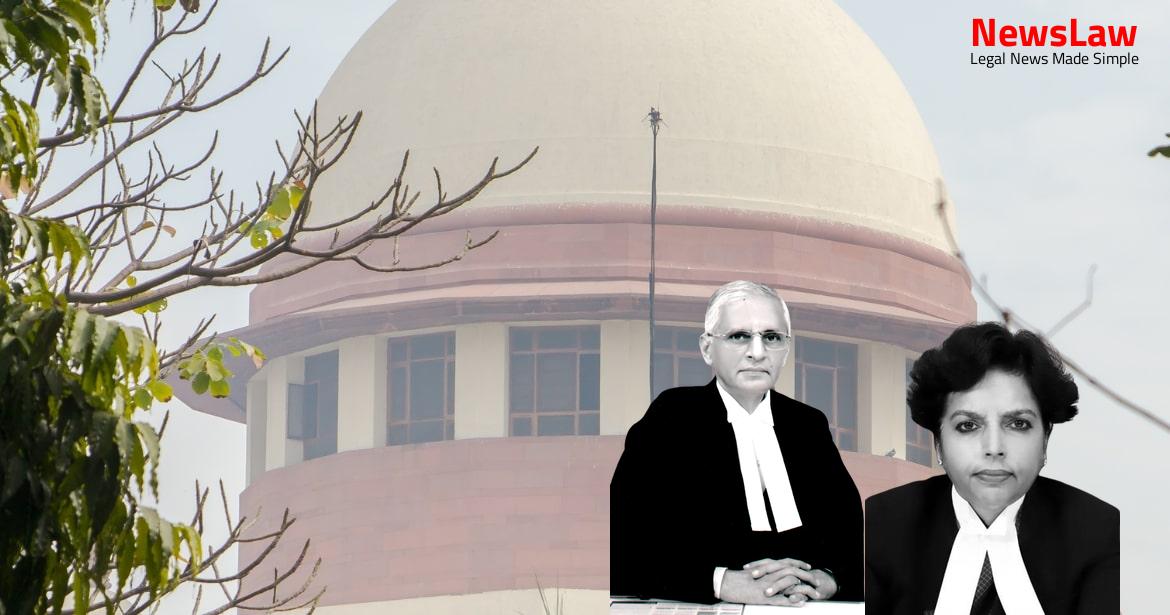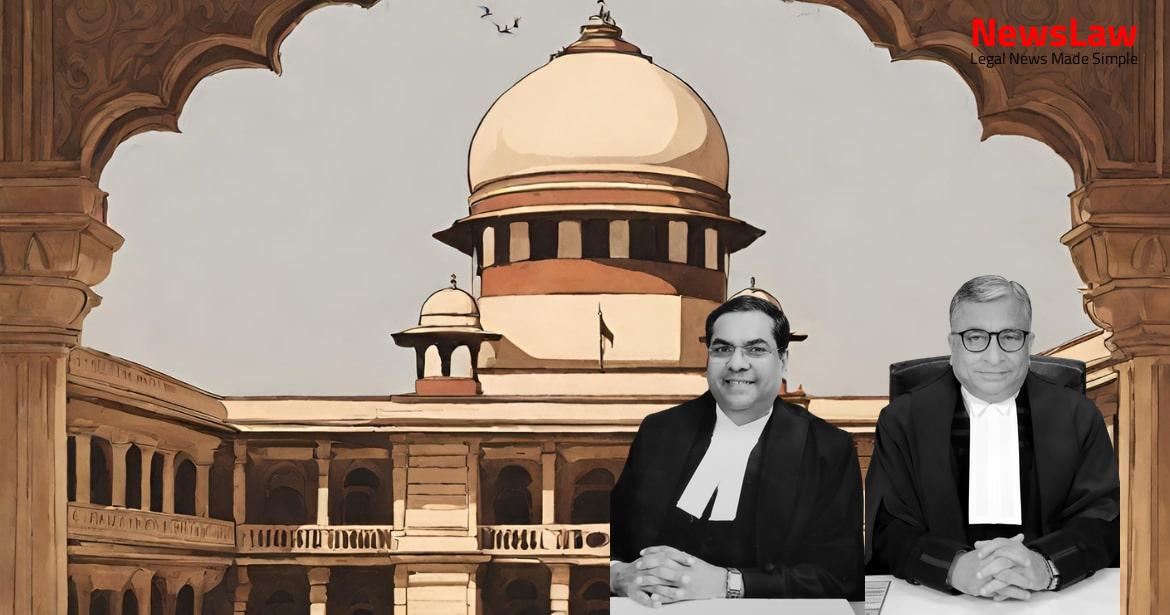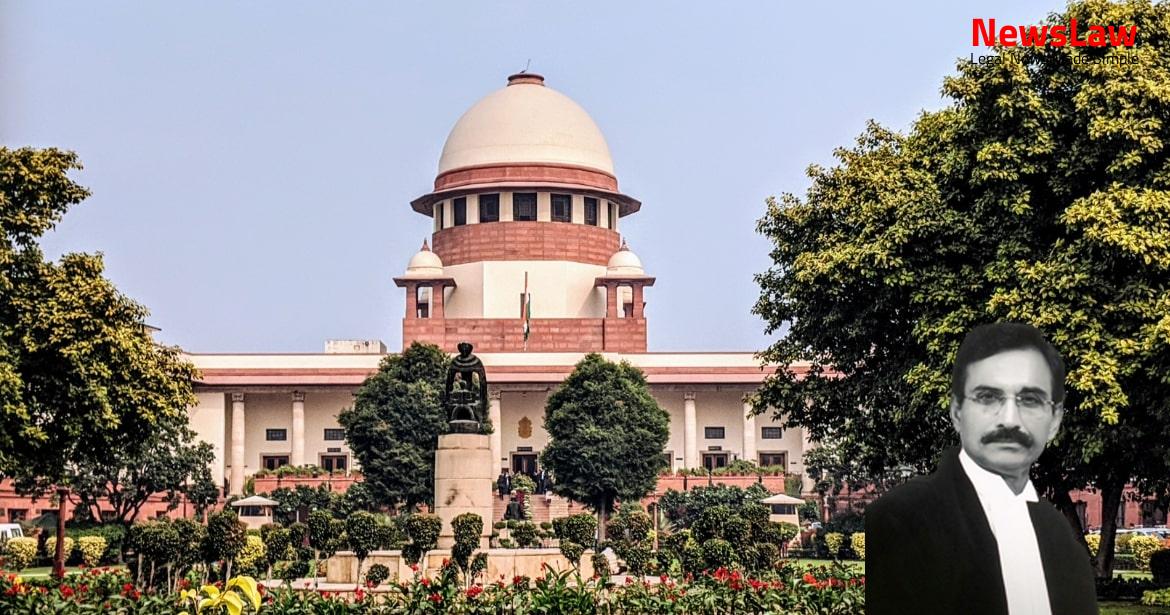Delve into the intricate legal analysis performed by the court in a recent criminal case appeal. The court’s thorough examination of evidence, procedural fairness, and the principles of justice are vital aspects that guide the decision-making process. Discover how the court’s review of the case highlights the significance of due process and adherence to legal standards in upholding the rule of law.
Facts
- The witnesses, PW-12 and PW-15, provided crucial testimony in the case of the murder of Raju.
- The police, upon receiving secret information, took Om Prakash and found the weapons near the Forest Office.
- PW-12 mentioned the entry of young boys in their house inquiring about Raju, indicating a possible motive for the crime.
- The autopsy report detailed the injuries sustained by Raju, indicating the cause of death as shock and hemorrhage.
- Janki Devi, in her statement, accused Suryavir, Devender, and Pardeep of murdering Raju and fleeing on motorcycles.
- The High Court had rejected a Special Leave Petition related to the case.
- The appellant challenged the judgment in the High Court, leading to the current appeal.
- The trial involved charges under Section 302/120-B of the IPC and Section 25 of the Arms Act.
- The FIR was registered based on a complaint by Om Prakash, who mentioned his son Raju had died en route to the hospital.
- Witness testimony and recovery of weapons played key roles in the investigation.
- Janki Devi implicated the accused and mentioned that the landlord might have sent them.
- Accused Suryavir and Devender were convicted for the offence under Section 25 of the Arms Act and awarded a substantive sentence of one year and six months along with a fine of Rs. 2000.
- Both accused filed appeals in the High Court which upheld the Trial Court’s decision and dismissed the appeals.
- Accused Devender alias Dhola filed a Special Leave Petition (Crl.) challenging his conviction and sentence.
- Witness mentioned before the police that the accused escaped on motorcycles after firing shots, as per her cross-examination.
- The Trial Court acquitted the third accused Pradeep of all charges but convicted Suryavir and Devender under Section 302 read with 34 IPC, sentencing them to life imprisonment.
Also Read: Electoral Malpractices in Mayor Election
Arguments
- Test identification parade could have provided greater assurance about assailants’ identity
- Alleged enmity with Kamaljeet and Kuldip was not investigated into
- Courts consistently held view reaffirmed by dismissal of Special Leave Petition by co-accused Devender
- PW-12 and PW-15 were not aware of assailants’ identity
Also Read: Balancing Power and Transparency: Electoral Bonds Struck Down, Disclosure Mandated
Analysis
- The prosecution failed to establish its case beyond reasonable doubt.
- Dismissal of S.L.P. (Crl.) No.9957 of 2016 of co-accused-Devender alias Dhola had an impact.
- The benefit granted in another appeal to one co-accused led to a similar benefit for the earlier co-accused.
- Test identification parade was not conducted for the assailants.
- The source of information establishing the identity of the assailants was not disclosed.
- The incident of the previous day was not mentioned by the witnesses in their testimony.
- In the absence of primary sources knowing the identity of the assailants, assertions in the first information report were not considered adequate and trustworthy.
- The Court retains an inherent power and jurisdiction to deal with extraordinary situations in the interests of justice and to prevent manifest injustice.
- The case of Akhil Ali Jehangir Ali Sayyed v. State of Maharashtra was referenced, where a co-accused was granted the benefit after dismissal of his special leave petition and review application.
- The Court found it manifestly unjust to allow the death sentence of the petitioner to be executed and referred to the decision in Harbans Singh v. State of U.P. for support.
- The Court decided to alter the conviction of the second accused, Jabbar, to Section 304 Part I.
- A sentence of rigorous imprisonment for ten years was awarded to Jabbar.
- The decision was made in order to maintain parity of reasoning and justice, as the role of the second accused was not more serious than that of the appellant.
Also Read: Recall of Resolution Plan Approval: Legal Analysis
Decision
- Devender is acquitted of all charges without any prayer or application on his part
- The appeal arising out of SLP (Crl.) No.9957/2016 is allowed
- Intimation to be sent to concerned Jail authorities for extending benefit to Devender
- Order of dismissal in SLP (Crl.) No.9957 of 2016 is recalled and restored to the file
- Leave is granted in the matter and the appeal is allowed for Devender
- Both convicted accused to be set at liberty unless needed in connection with any other offence
Case Title: SURYAVIR Vs. THE STATE OF HARYANA (2022 INSC 139)
Case Number: Crl.A. No.-000177-000177 / 2022



